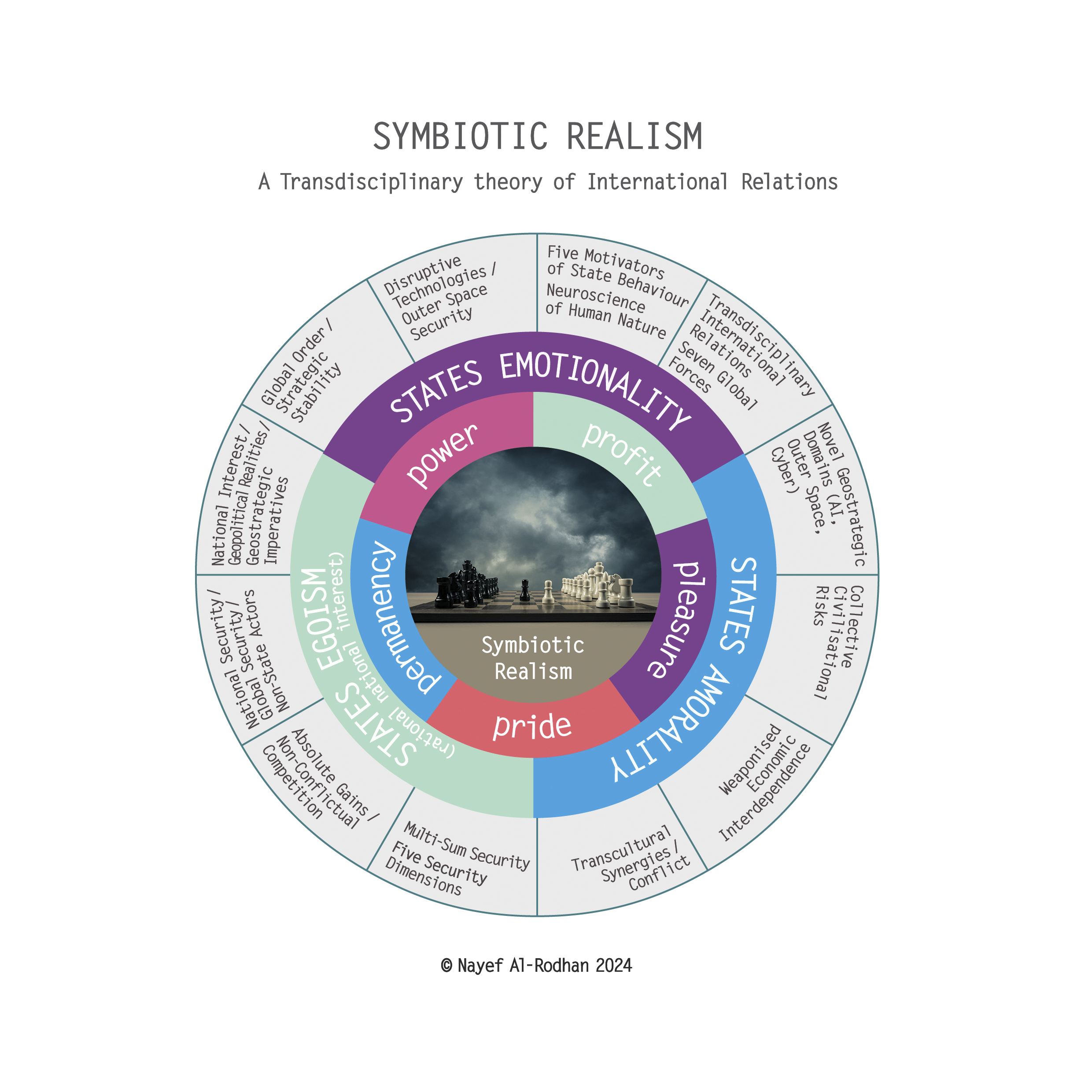Symbiotic Realism: a transdisciplinary approach to understanding international relations
Abstract
The contemporary landscape of international relations (IR) is shaped by seven interdependent forces: disruptive technological advancements; the changing role of non-state actors; the emergence of novel strategic domains; the rise of collective civilizational frontier risks; the intensification of sub-/supra-national transcultural historical schisms, and the weaponization of economic interdependence. This paper argues that these six forces are profoundly influenced by a seventh: the predispositions of human nature. Traditional IR theories have long relied on speculative notions of human nature to advance their explanations of global politics. Their capacity to explain trends or events rests on a range of assumptions rather than explicit knowledge of the drivers of behavior. This paper presents an approach that unifies insights from the life sciences with ideas from realist IR theory. Informed by neuroscientific findings about the formation of emotions, Symbiotic Realism targets the speculation at the core of IR paradigms to account for the inherent human predispositions shaping state behavior in light of changing global dynamics. It does this by employing pragmatic, multi-sum, symbiotic, and non-conflictual competition to advance the view that national interests must be reconciled with transnational and transplanetary interests for them to be achieved in a sustainable and peaceful way.
Figure 1. The key tenets of Symbiotic Realism.

Disclaimer: This publication was originally published on the Frontiers website. The views, information and opinions expressed in this publication are the author’s/authors’ own and do not necessarily reflect those of the GCSP or the members of its Foundation Council. The GCSP is not responsible for the accuracy of the information.

